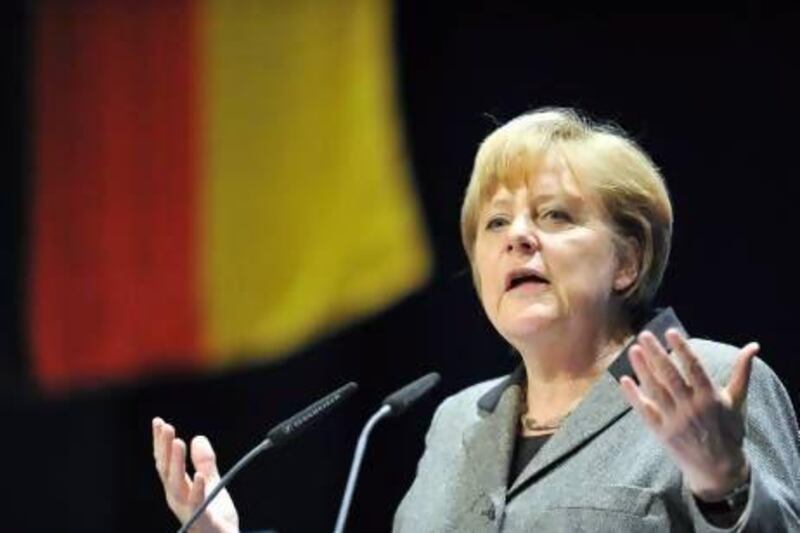Germany's conservatives will focus their campaign on the party's economic competence and on jobs during nationwide elections later this year, the German Chancellor Angela Merkel said yesterday at a party conference at the North Sea port of Wilhelmshaven.
Mrs Merkel, who faces re-election in parliamentary elections expected in September, said at a press conference her Christian Democratic Union and sister party Christian Social Union would present their election programme at the end of June.
"We're not talking about tax cuts at the moment, with the exception of bracket creep," the chancellor said at a press conference following party discussions.
Bracket creep, known as "cold progression" in Germany, refers to the effect of wage increases pushing workers into higher tax brackets - wiping out the real increase in earnings.
Mrs Merkel's party opposes both bracket creep and tax increases.
In two weeks, the state of Lower Saxony, where Wilhelmshaven is located, will go to the polls in an election that analysts say could be an important gauge for the general election due in the autumn.
Mrs Merkel's conservatives are seeking re-election in Lower Saxony, where the current state government rules in a coalition with the pro-business Free Democrats, also known as the Liberals.
Mrs Merkel rules in the same constellation at a national level.
The Liberals' current poor performance in polls, both in Lower Saxony and nationwide, have raised questions as to whether the current coalition can survive despite Mrs Merkel's party's popularity.
"The question is whether Merkel, with her high prestige, can generally bring the party forward - but the chances of that are lower in a regional election than in a general election as Germans normally vote for a party and not for a person," said Gerd Langguth, a political scientist at the University of Bonn.
A poll released on Thursday by the broadcaster NDR found the Christian Democrats have 40 per cent support in Lower Saxony. Its rival, the left-leaning Social Democrat party, is polling considerably lower at 34 per cent.
However, despite being the strongest party, the Christian Democrats may not win enough votes to form a government in Lower Saxony due to the weakness of its preferred coalition partner, the Free Democrats, which is forecast to get just 4 per cent of the vote.
Meanwhile, the Social Democrats' preferred coalition partner, the Greens, is polling at 13 per cent, meaning the projected Social Democrat and Green vote would therefore reach 47 per cent and thus exceed the 44 per cent a coalition of Christian Democrats and Free Democrats is polled to reach.
Mrs Merkel said she was "very optimistic" the Free Democrats would win over enough voters under the party's own steam in Lower Saxony.





